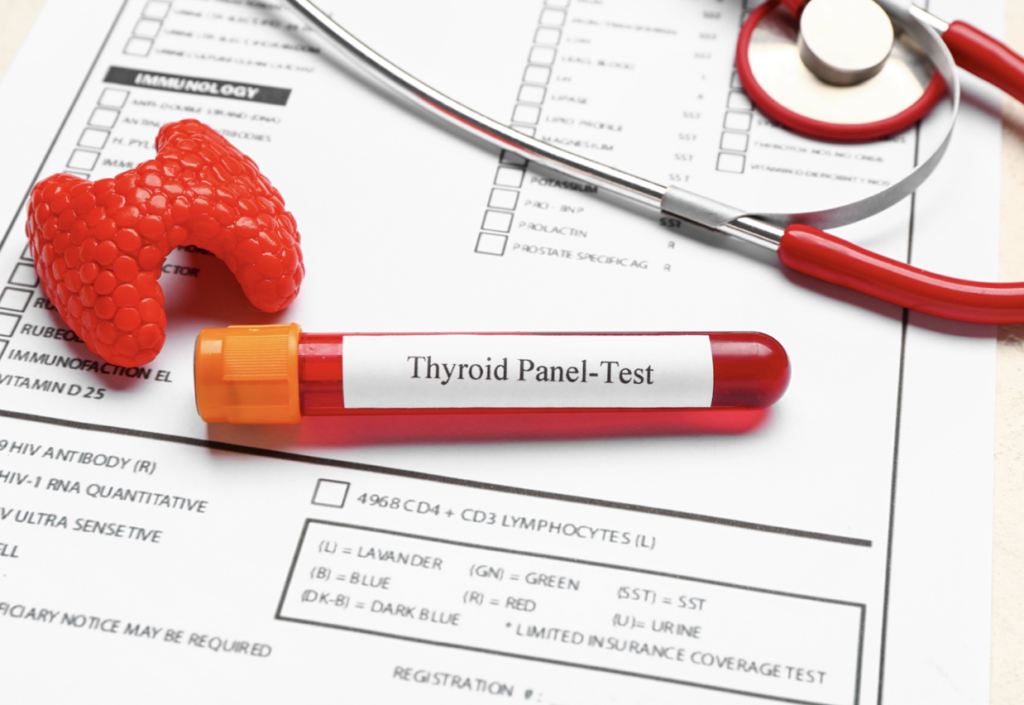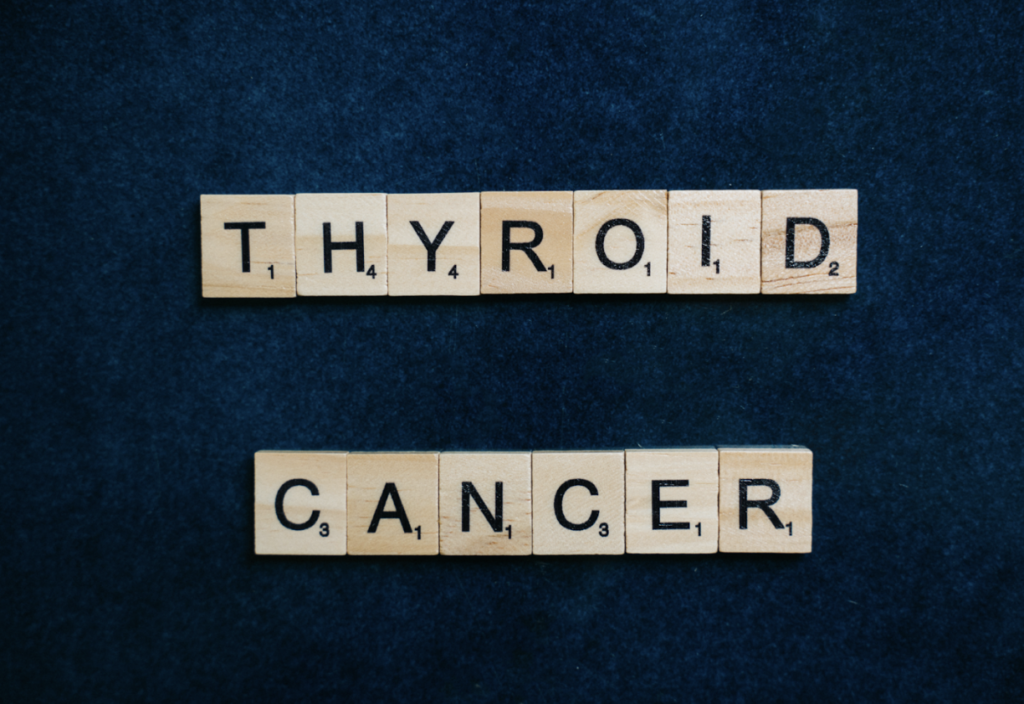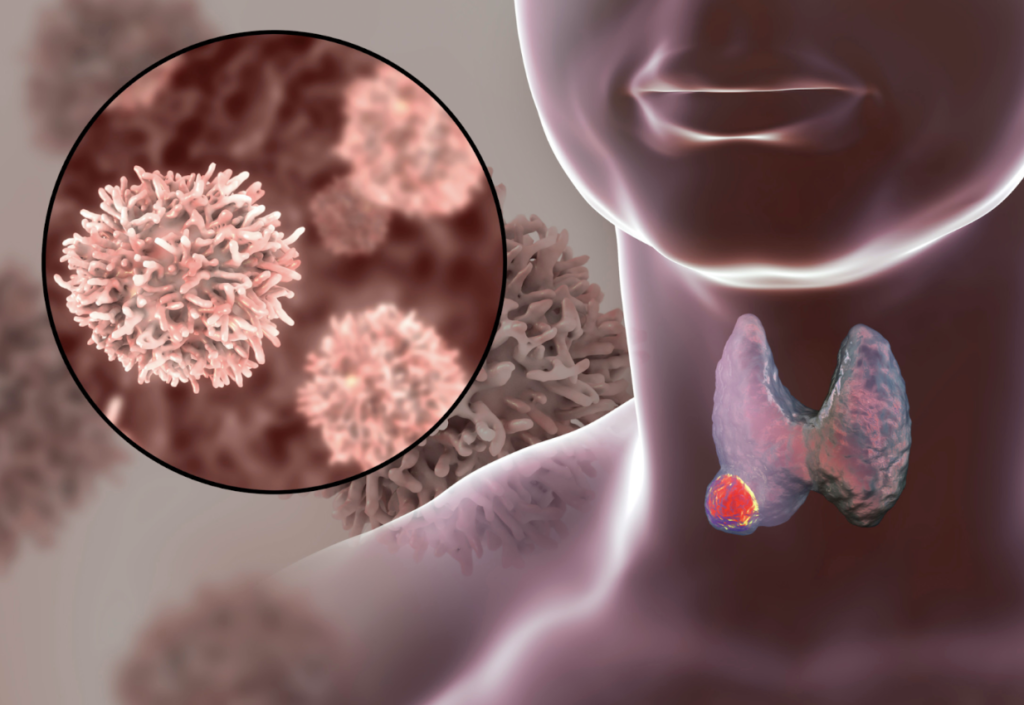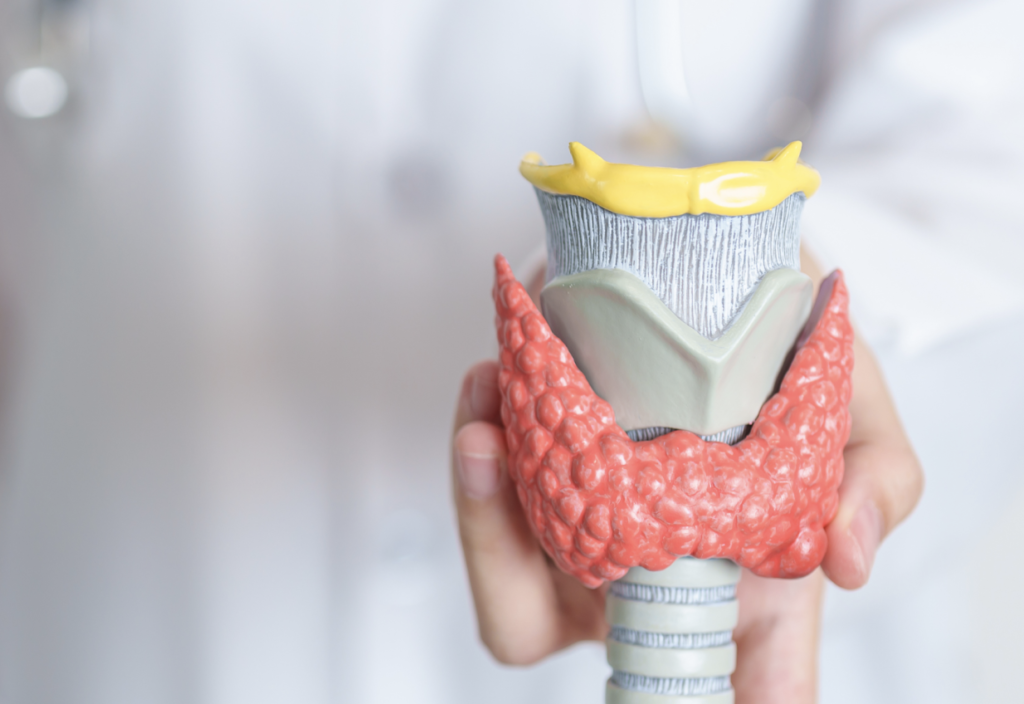Let’s Talk About Thyroid Cancer

Let’s Talk About Thyroid Cancer

Thyroid cancer might not grab the headlines like breast, lung, or prostate cancer does, but it’s a concern that can make a significant impact on the lives of those who face it.
So, where does it all begin? Thyroid cancer starts in a tiny but crucial part of our body called the thyroid gland. Picture a butterfly-shaped gland tucked away at the base of your neck. This part of your endocrine system produces hormones that keep your body running smoothly. And these hormones play a significant role in regulating your heart rate, blood pressure, body temperature, and weight.
While thyroid cancer isn’t all that common in the grand scheme of things, what’s worth noting is that its numbers have been on the rise worldwide. That’s where we come in: to shed some light on this topic and help bring awareness to the risks, symptoms, and what to look out for.
Types of Thyroid Cancer

Thyroid cancer is not a one-size-fits-all disease; it comes in different types, each with its own characteristics and treatment considerations. The most common types of thyroid cancer include papillary and follicular thyroid cancer.
Papillary thyroid cancer is the most prevalent, accounting for about 80% of all thyroid cancer cases. It usually grows slowly and has a good prognosis when detected early. Follicular thyroid cancer is the second most common type and also tends to grow at a relatively slow pace. Less common than papillary, this type accounts for about 10% to 15% of all thyroid cancers.
A third type––Medullary thyroid cancer, is a rarer form that develops in the parafollicular cells of the thyroid gland. It can be more aggressive and may require more intensive treatment. Anaplastic thyroid cancer is the least common but the most aggressive subtype, growing rapidly and often challenging to treat successfully. This type represents less than 2% of all thyroid cancers and is challenging to treat.
There is also a subtype known as thyroid lymphoma, which originates in the immune system cells within the thyroid gland. Although it is rare, it requires specialized treatment approaches.
Causes and Risk Factors

Thyroid cancer is a complex disease, and its exact causes are not always clear. However, several risk factors and potential contributors have been identified.
- Gender: Thyroid cancer is more common in women than in men, with the ratio being about 3:1.
- Age: Thyroid cancer can occur at any age, but it is most commonly diagnosed in people between the ages of 30 and 60.
- Radiation Exposure: Exposure to ionizing radiation, especially during childhood, is a well-established risk factor for thyroid cancer. This can come from sources such as medical radiation treatments, nuclear accidents, or occupational exposure.
- Family History: A family history of thyroid cancer or certain hereditary conditions, such as familial medullary thyroid cancer or multiple endocrine neoplasia (MEN), can increase the risk.
- Iodine Deficiency or Excess: The risk of thyroid cancer may be higher in areas with iodine deficiency or excess. Iodine is essential for thyroid hormone production, and an imbalance can affect the gland.
- Genetic Mutations: Some genetic mutations, such as mutations in the RET proto-oncogene, are associated with an increased risk of medullary thyroid cancer.
- Gender and Reproductive Factors: Some studies suggest that hormonal factors, such as the use of estrogen-based hormone replacement therapy or a history of fertility treatments, may slightly increase the risk of thyroid cancer.
- Obesity: Some research has indicated a possible link between obesity and an increased risk of thyroid cancer, particularly the more aggressive subtypes.
It’s important to note that having one or more of these risk factors doesn’t guarantee the development of thyroid cancer, and many people with thyroid cancer have no known risk factors.
Conversely, some individuals with multiple risk factors may never develop the disease.
Regular check-ups with a healthcare provider, especially if you have risk factors, can help with early detection and timely treatment if thyroid cancer does occur. Also, maintaining a healthy lifestyle, avoiding unnecessary radiation exposure, and managing other health conditions can reduce cancer risk.
A quick and easy way to test your thyroid levels would be the 247LabKit Thyroid Level Test. The panel is a convenient home testing kit designed to assess thyroid function and identify potential thyroid issues. It involves a simple finger-prick sample you collect at home and send for analysis.
Signs and Symptoms

Thyroid cancer often does not cause any signs or symptoms in its early stages, but as it grows, it can cause several symptoms.
The most common sign of thyroid cancer is a lump or nodule that can be felt in the neck. Thyroid cancer can also lead to a hoarse voice, and tumors in the thyroid may press on the esophagus, making swallowing difficult.
A large nodule can also interfere with breathing by pressing on the trachea (windpipe). You may also experience pain in the front of the neck, extending to the ears. Or a cough that does not seem to be related to a cold or allergy and does not go away can be a sign of thyroid cancer.
Other symptoms include:
Swollen Lymph Nodes: Swollen lymph nodes in the neck can occur due to thyroid cancer.
Throat Pain: Similar to neck pain, this can occur if the tumor grows and presses on nerves.
Weight Loss: Unexpected weight loss without changes in diet or exercise habits may be a symptom.
Fatigue: A general feeling of being tired and weak can occur with any cancer, including thyroid cancer.
It’s important to note that these symptoms can also be caused by conditions that are not cancer, such as benign thyroid nodules or thyroid gland inflammation (thyroiditis).
However, if you notice any of these symptoms, especially a lump in your neck, it is vital to see a healthcare provider for an evaluation. They can perform tests, such as a physical examination, an ultrasound of the neck, and, if necessary, a biopsy to determine if the lump is cancerous. Early detection and treatment can significantly increase the effectiveness of treatment for thyroid cancer.
Diagnosis

The diagnosis of thyroid cancer typically involves a combination of clinical evaluation, imaging tests, and biopsy.
A doctor will first need to gather information about any symptoms you might be having––like a lump in the neck, difficulty swallowing, hoarseness––your exposure to risk factors, and any family history of thyroid disorders or cancer. During the physical exam, your doctor will palpate your neck to check for nodules, swelling, or other abnormalities in the thyroid gland.
Then come the tests, such as the thyroid-stimulating hormone (TSH) test, which can check for thyroid function and help rule out other thyroid conditions. A neck ultrasound can also help determine if a thyroid nodule is solid or filled with fluid (cystic) and if there are suspicious features that are more consistent with cancer.
When it comes to radioiodine scanning, this test involves the administration of radioactive iodine, which gets absorbed by thyroid tissue. Thyroid cancer cells often do not take up iodine as well as normal thyroid cells do, so this can sometimes help in diagnosis.
CT scans, MRI, or PET scans may be used to determine the size and extent of the cancer, mainly if it has spread beyond the thyroid.
Penultimately, the fine-needle aspiration biopsy is the most definitive way to diagnose thyroid cancer. A fine needle is inserted into the thyroid nodule, and cells are extracted and examined under a microscope. If cancer cells are present, the biopsy can also help to determine the type of thyroid cancer.
Last but not least, a laryngoscopy might be done if there’s a concern about voice changes to check the function of the vocal cords.
Once a diagnosis is made, the stage of the cancer is determined based on the size of the tumor, whether it has spread to lymph nodes, and whether it has metastasized to other parts of the body.
Treatment

If thyroid cancer is diagnosed, treatment options may include surgery (the most common treatment), radioactive iodine treatment, external radiation therapy, chemotherapy, targeted therapy, or a combination of these.
The choice of treatment will depend on the type and stage of cancer, as well as the patient’s age, overall health, and personal preferences.
The primary treatment for most thyroid cancers is surgery to remove part or all of the thyroid gland. After surgery, radioactive iodine treatment can be used to destroy any remaining thyroid tissue or cancer cells.
After the thyroid is removed, you’ll likely need to take thyroid hormone medication for life. External radiation therapy is also a solution for destroying cancer cells or slowing their growth.
While chemotherapy is rarely used for thyroid cancer, it may be necessary in some cases, especially with anaplastic thyroid cancer.
Physicians may also recommend targeted drug therapy targeting specific abnormalities in cancer cells or clinical trials offering new and innovative treatments.
The prognosis for thyroid cancer varies. Papillary and follicular thyroid cancers can often be treated successfully, especially in younger individuals. Medullary and anaplastic thyroid cancers are less common and have a more guarded prognosis.
Conclusion

Thyroid cancer, though less common than other forms, is a paramount health concern. Being diagnosed with thyroid cancer can significantly impact your life, but many people continue to live full, active lives during and after treatment. Follow-up care is essential, as is support from friends, family, and support groups.
While you can’t prevent thyroid cancer, you can reduce your risk by avoiding unnecessary radiation exposure. Regular check-ups can help find thyroid cancer early, and awareness of the symptoms can lead to earlier diagnosis and treatment. And with medical advances, many forms of thyroid cancer can be managed successfully, allowing those affected to lead healthy lives.
Remember, if you have concerns about your thyroid or your health in general, it’s always best to consult a healthcare professional. Let’s keep the conversation about thyroid cancer going – because the more we talk about it, the better equipped we are to recognize and address it.